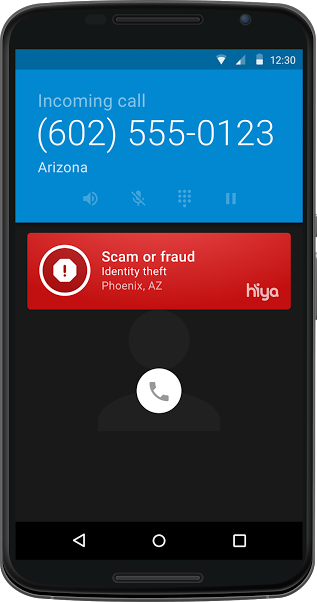Meet Hiya: Whitepages Spins Off Caller ID Business With Mission To Fight Robocalls, Spam Texts Worldwide

Whitepages wants to end robocalls and spam texts once and for all. The online phone directory is spinning off Hiya Inc., formerly known as Whitepages Caller ID, to do just that.
Hiya pulls from a database of 1.5 billion numbers to identify a person or a business for incoming and outgoing calls to help with address book management. The app also signals to a user if the call is from a spam number and lets users block those callers. Hiya also shares news about the latest phone scams.
The company has been built for the last few years out of Whitepages, but founder Alex Algard said he'd identified more opportunity for the company to grow if it split from the core business. Hiya Inc. will now operate separately, based in Seattle, to further build on its software and lock down more deals with wireless carriers and phone manufacturers. It will operate with 40 of the 160 employees at Whitepages, the majority of whom are engineers.
“It will better provide focus as a standalone company whose only mission is to make phone communication better. It’s much better to focus as a smaller company that isn’t competing with the goals of another,” Algard told International Business Times.

Hiya isn’t at it alone. The Federal Communication Commission has been working to protect consumers from spam. The FCC allowed phone companies the ability to legally block unwanted robocalls and spam texts last year.
Since that ruling, some phone companies have partnered with Whitepages — now Hiya — to make their calls smarter. For example, the app is automatically downloaded on newly shipped Samsung S7 phones, the top-selling smartphone globally. Hiya also has a deal with T-Mobile where customers can pay $3.99 a month for enhanced services.
So far, the app has been downloaded on 25 million smartphones and has identified more than 1 billion spam calls. The app is available for Android devices only; rival Apple does not allow third-party developers to access a user’s contacts.
Hiya is increasingly looking globally for its expansion. While robocalls are prevalent in the United States — accounting for 54 percent of customer complaints to the FCC in 2014 — the issue can be even more severe overseas.
The team studies common scenarios worldwide. Algard traveled to Korea last summer, where he learned of a phone scam that involved calling parents — often with a child in the military — to say that their son or daughter had been in an accident and needed to be financed the cost of treatment now.
In Mexico, there are fake extortion scams. “Someone will call, targeting parents, and say they have their kid with them right now: ‘Don’t hang up. If you hang up, terrible things will happen,’” Algard said.
Why Hiya? Hiya was also the name for Whitepage's address book app, first released in 2011. The team was looking for a catchy, four-letter word that did not translate into a swear word in other languages. “We’re really entrusting on what a global issue this is,” Algard said.
Hiya has offices in Seattle, New York City and Budapest and plans to open more overseas. Now, with Hiya as a standalone company, Algard said he's prioritizing signing on to new partnerships, domestically and globally.
© Copyright IBTimes 2025. All rights reserved.




















